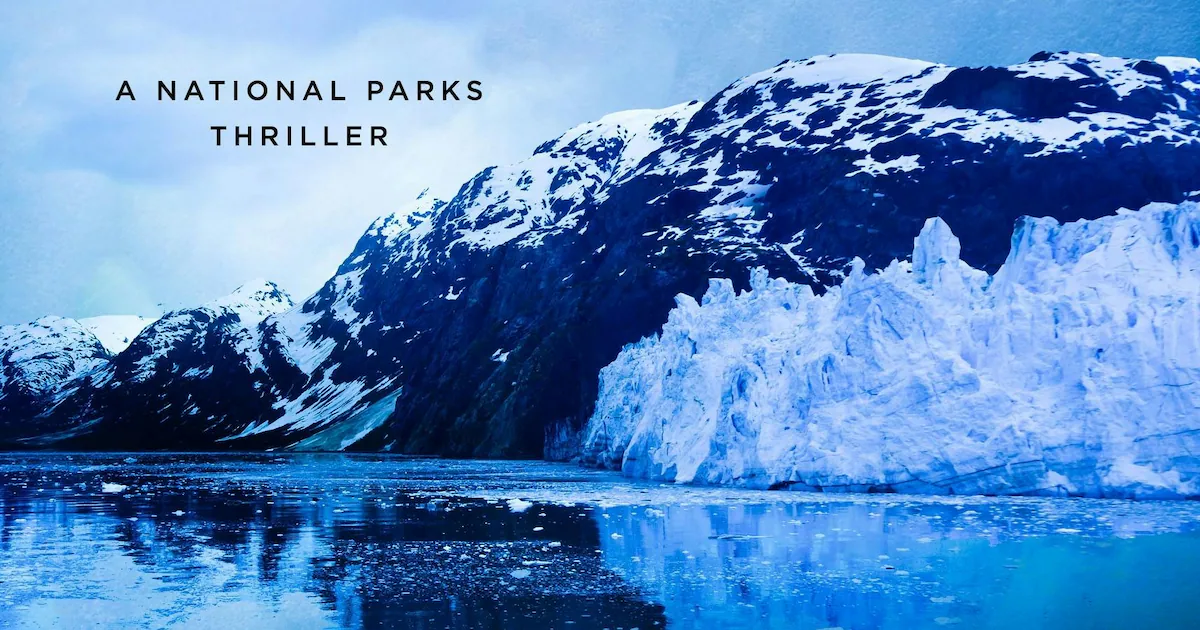
“Cold Burn: A National Parks Thriller”
By A.J. Landau; Minotaur Books, 2025; 336 pages; $28.
Once in a while even arguably serious book reviewers like myself need to indulge in some brain candy, and I’m happy to say that the recently published novel “Cold Burn” fits the bill. It’s a detective/science/espionage thriller with an apocalyptic twist and a decent-sized body count, providing the essentials for needed escapism in these troubled times. Although that said, it reflects these troubled times in a few significant ways. And like so many such books, it also has its problems. But it’s still worth reading if pure entertainment is on your agenda.
Subtitled “A National Parks Thriller,” it’s the second installment in a relatively new series of novels set — obviously — in our nation’s national parks. The series is credited to A.J. Landau, which, as is noted in the inside of the jacket, is a pseudonym for the team of Jon Land, who, the bio says, has more than 50 books to his name, and Jeff Ayers, a retired librarian with a handful under his belt as well. Given that these are two writers packed into one name, the rest of the review will refer to them as “the author(s).”
I’ve not read the first volume in this series, but it isn’t necessary since this one is easy enough to follow. The two lead characters — who never interact in person — work for different agencies, and enough of their respective backgrounds is provided to make the book easy to jump into.
“Cold Burn” catapults back and forth between two parks at opposite ends of North America: Alaska’s Glacier Bay National Park and Preserve, and Florida’s iconic Everglades National Park. Much of the action takes place in or near the confines of each, although there are side trips to New Orleans, New York, Washington D.C., the Bahamas, and even Ukraine along the way.
The story opens on the Lamplugh Glacier, located in Glacier Bay, where a USGS team is caught in an avalanche and runs for cover in a cave. There they encounter some sort of creature that is, naturally, unidentified until later in the book. Next readers are brought onboard a Navy submarine snaking through Icy Strait that gets hit by an underwater mine from World War II that’s right then being raised by a salvage vessel. The sub sinks to the sea bottom. The fate of the two stranded crews can’t be told without spoiling all the fun, but — obviously again — what happens to them is key to what follows.
From there we meet Michael Walker, a National Park Service Investigative Services Branch employee mourning his dead wife and hobbled by a prosthetic foot. He’s newly sent to Sitka to investigate an ongoing series of Tlingit artifact thefts from museums and other locales in the greater park region.
Then we head to Florida, where FBI Special Agent Gina Delgado is dispatched to look into the murder of an unidentified victim whose body was dumped in the Everglades. An Iraq War veteran working for the White House, she’s understandably curious as to why the seemingly local crime has attracted the attention of the feds.
Plenty more follows, as do additional characters. Among them are Rosalee Perry, in charge of an ongoing government study in Florida using a mysterious substance that can lower seawater temperatures, offering hope that it could help combat global warming.
There’s also a maniacally evil billionaire named Axel Cole who has his own secret substance, a black powder possessing so much concentrated energy that it can potentially power a human-occupied spacecraft to Mars and back. Cole, aspiring to be the world’s first trillionaire, is clearly patterned on Elon Musk, although in an age when truth vastly outpaces fiction, he’s downright amicable by comparison.
Then there’s Tlingit microbiologist Amka Reynolds, an MIT grad recently returned to her home village, a fictional one set on the very real Lester Island, and her grandfather, the community’s shaman and chief. She’s perplexed by the sudden appearance of dead fish on the island’s shores that expired by freezing from the inside out.
Finally, there’s Russian Gen. Viktor Adamovitch, an ambitious military officer stationed, like most Russian forces these days, in Ukraine. Since it’s a given that all the various plot threads that initially appear unrelated will be woven together, suffice to say that he sees in what is transpiring a means of amassing enough power to unseat Vladimir Putin and become the next Kremlin despot.
What follows is a romp. The author(s) keep things clipping along with brief, fast-paced chapters usually ending with some sort of cliffhanger, then shift scenes and characters on the next page, where more unanswered questions and potentially deadly peril await. They’re pretty good at what they do.
They’ve also done their homework on the historical, geographical, and ecological aspects of their two primary settings, and include little factoids at the outset of each chapter that offer further context for the events playing themselves out.
One of the historical events, which involved the Tlingit, is key to the book’s climax, although it also points to one of the book’s flaws. Yes, there have been considerable conflicts between Tlingit peoples and the Park Service in the Southeast, but the author(s) overplay this while mostly overlooking recent agreements that have eased tensions. They also use their shaman character in a manner that plays more to stereotypes than fact.
Additionally, the science in this book is scientific in a Michael Crichton sort of fashion. Which is to say, scientific to the extent usable for plot purposes, and then just fanciful. Although, unlike the notorious Crichton, they don’t present themselves as experts owing to their unlettered fictional dabbling. They’re novelists and they know it.
All that said, “Cold Burn” is a good time. Loads of action, plenty of red herrings to keep both of the heroes, as well as readers, chasing dead ends, and an array of well-defined characters. It’s silly, as such books should always be, but that’s what makes it so enjoyable. You won’t get burned by reading it.
[Review: Tom Sexton’s last poetry collection is a treasure]
[Dan Brown on his new thriller, ‘The Secret of Secrets,’ and how he manages intricate plots]



